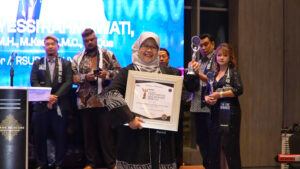Stockholm — The Nobel Prizes 2025 have been awarded across six categories, celebrating individuals whose discoveries and contributions are transforming science, literature, and global society.
Physics
The Nobel Prize in Physics went to John M. Martinis, Michel H. Devoret, and John Clarke for their groundbreaking experiments demonstrating macroscopic quantum tunneling and energy quantisation in electrical circuits. Their work brings quantum mechanics into visible, practical systems, paving the way for quantum computing.
Chemistry
Omar M. Yaghi, Susumu Kitagawa, and Richard Robson were honored for the development of metal–organic frameworks (MOFs), materials with vast applications in clean energy, gas storage, and environmental sustainability.
Physiology or Medicine
The prize was awarded to Mary E. Brunkow, Fred Ramsdell, and Shimon Sakaguchi for their discoveries in peripheral immune tolerance, research that has revolutionized understanding of autoimmune diseases and opened new therapeutic pathways.
Literature
Hungarian novelist László Krasznahorkai received the Nobel Prize in Literature for his visionary oeuvre that reaffirms the power of art amid apocalyptic terror, cementing his reputation as one of Europe’s most profound literary voices.
Peace
The Nobel Peace Prize was awarded to Venezuelan opposition leader María Corina Machado for her tireless struggle for democratic rights and peaceful transition from dictatorship, a recognition that resonates far beyond Venezuela’s borders.
Economic Sciences
The Sveriges Riksbank Prize in Economic Sciences in Memory of Alfred Nobel went to David Autor, Daron Acemoglu, and Pascual Restrepo for their research on automation, labor markets, and inequality, offering critical insights into the future of work.
Broader Significance
The 2025 laureates embody the Nobel spirit: advancing knowledge, defending human dignity, and inspiring global progress. From laboratories to literature, from grassroots activism to economic theory, their achievements remind us that innovation and courage remain the cornerstones of human advancement.










